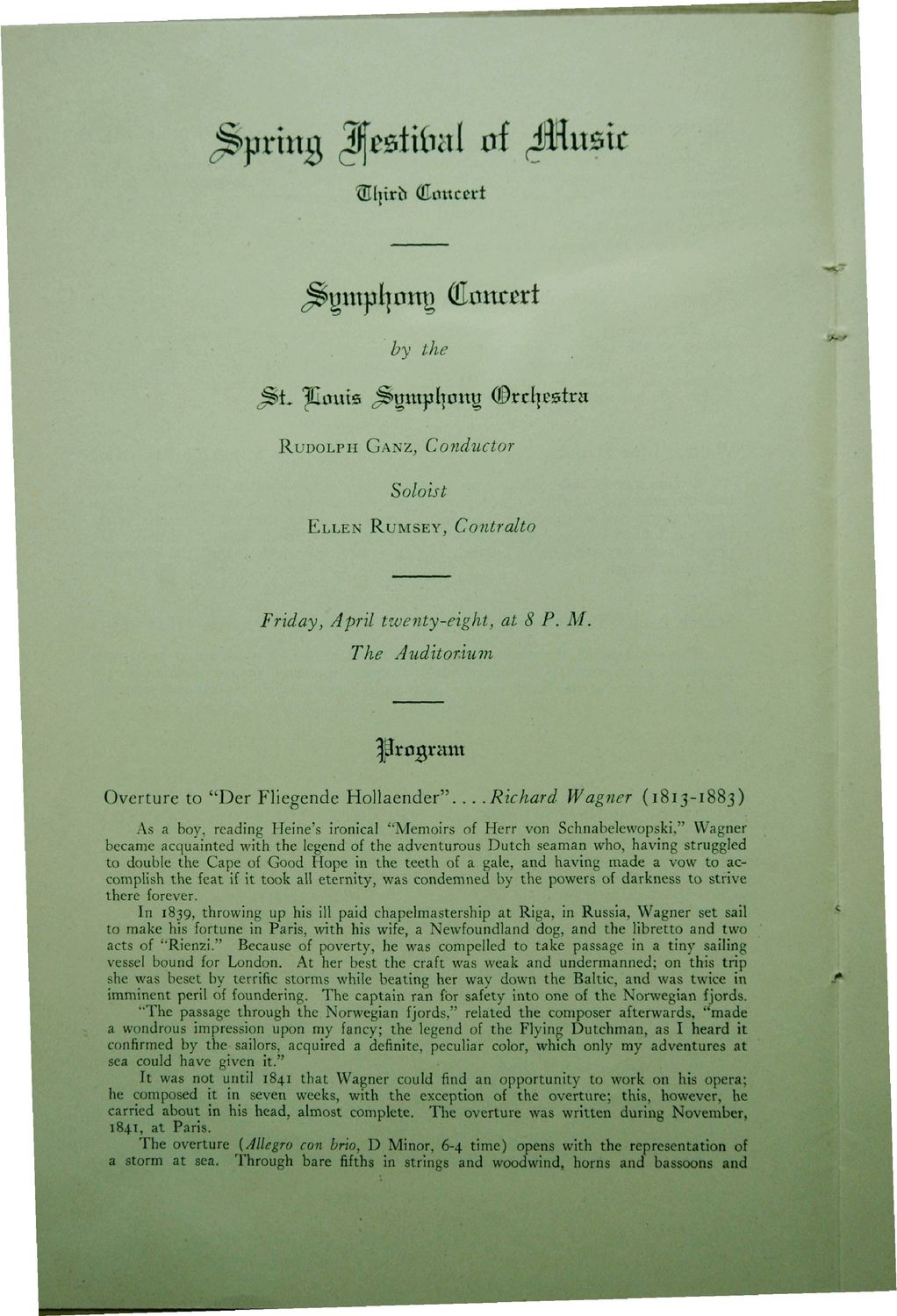| |
| |
Caption: Dedication - Smith Music Hall
This is a reduced-resolution page image for fast online browsing.

EXTRACTED TEXT FROM PAGE:
spring ^^stibd tA ffimlt ®l|trb (Hottest J§gmpfymt£ Concert by the RUDOLPH GANZ, Conductor Soloist ELLEN RUMSEY, Contralto Friday, April twenty-eight, at 8 P. M. The Auditorium program Overture to "Der Fliegende Hollaender" Richard Wagner (1813-1883) As a boy, reading Heine's ironical "Memoirs of Herr von Schnabelewopski," Wagner became acquainted with the legend of the adventurous Dutch seaman who, having struggled to double the Cape of Good Hope in the teeth of a gale, and having made a vow to accomplish the feat if it took all eternity, was condemned by the powers of darkness to strive there forever. In 1839, throwing up his ill paid chapelmastership at Riga, in Russia, Wagner set sail to make his fortune in Paris, with his wife, a Newfoundland dog, and the libretto and two acts of "Rienzi." Because of poverty, he was compelled to take passage in a tiny sailing vessel bound for London. At her best the craft was weak and undermanned; on this trip she was beset by terrific storms while beating her way down the Baltic, and was twice in imminent peril of foundering. The captain ran for safety into one of the Norwegian fjords. "The passage through the Norwegian fjords," related the composer afterwards, "made a wondrous impression upon my fancy; the legend of the Flying Dutchman, as I heard it confirmed by the sailors, acquired a definite, peculiar color, which only my adventures at sea could have given it." It was not until 1841 that Wagner could find an opportunity to work on his opera; he composed it in seven weeks, with the exception of the overture; this, however, he carried about in his head, almost complete. The overture was written during November, 1841, at Paris. The overture (Allegro con brio, D Minor, 6-4 time) opens with the representation of a storm at sea. Through bare fifths in strings and woodwind, horns and bassoons and
| |